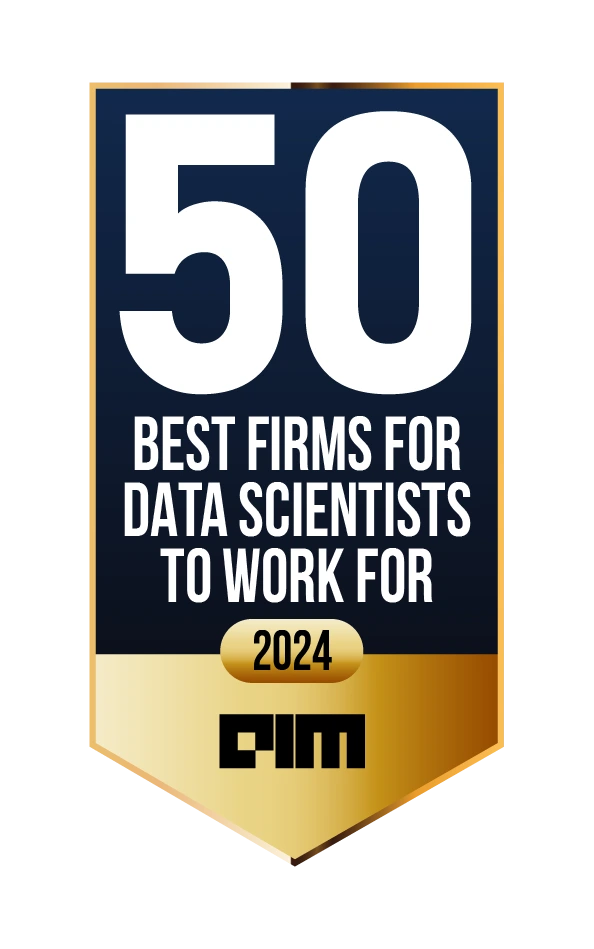Generative AI in Action: Pivotal Use Cases Every Business Leader Should Know
- Team Aays

- Nov 25, 2024
- 6 min read
Updated: Dec 18, 2024

Generative AI is revolutionising global industries by automating tasks, sparking innovation, and improving customer experiences. For senior business leaders, understanding the potential of generative AI is crucial for staying ahead of the competition. Gen AI use cases are empowering companies to reach new heights in performance, customer satisfaction, and profitability, from boosting operational efficiency to shaping innovative business models.
Why Senior Business Leaders Should Care About Generative AI?
Generative AI offers transformative potential for senior leaders managing complex data ecosystems. Beyond automating routine tasks, Gen AI enhances operational efficiency and reduces costs while driving data-rich decision-making. Generative AI can seamlessly integrate with existing systems to enable real-time forecasting, fraud detection, and profitability analysis, strengthening resiliency and risk modelling capabilities. By embedding generative AI into critical business functions, enterprises can proactively solve problems, adapt with agility, and deliver seamless, personalised customer experiences. This strategic adoption positions businesses to stay ahead of industry trends, continuously innovate, and achieve measurable ROI.
Generative AI Use Cases: Co-Pilots to Autonomous Agents
Generative AI is driving innovation across industries by enhancing processes, redefining operations, and creating entirely new opportunities. To understand its varied applications, we’ve classified use cases into three distinct categories: Incremental, Transformative and Disruptive. This framework helps businesses identify how generative AI can add value, from optimising current workflows to reshaping industries with groundbreaking solutions.
Incremental Initiatives (level 1): AI as Co-Pilots
Incremental AI use cases focus on improving efficiency within existing workflows. By targeting specific areas for optimisation, incremental AI solutions can bring about small but impactful changes that add up over time.
Chatbots for Customer Services
Generative AI-powered chatbots are revolutionising customer service by providing real-time responses, reducing wait times, and improving the overall customer experience. These chatbots handle a variety of customer queries, allowing businesses to reduce operational costs while enhancing customer satisfaction.
Expert Systems: Knowledge Copilots
Generative AI expert systems, or knowledge copilots, assist professionals by providing them with quick access to critical information and insights. These systems are particularly useful for decision-making in fields such as finance, where access to accurate information is crucial.
Process Automation
Generative AI helps automate repetitive processes, such as data entry, invoice processing, and customer onboarding, allowing teams to focus on higher-value activities. By reducing manual effort, AI improves productivity and ensures consistency in business operations.
Advanced Demand Forecasting
AI enhances demand forecasting by analysing vast datasets to identify patterns and trends. Generative AI models enable businesses to make more accurate predictions, improve inventory management, reduce waste, and ensure timely product availability.
Code Co-pilot
AI copilots assist developers by generating, optimising, and reviewing code. These AI systems enable software development teams to create high-quality code faster, reduce errors, and increase productivity.
Decision Intelligence
Generative AI-driven decision intelligence systems help businesses make data-backed decisions with higher accuracy. These systems use advanced analytics to provide insights that guide leaders in making real-time decisions for better operational outcomes.
Hyper-Personalized Recommendations
Generative AI provides hyper-personalized recommendations based on customer preferences and behaviour. By analysing data on user interactions, AI tailors product and service recommendations, thereby improving customer satisfaction and boosting sales.
Content Creation Optimized for Mx
AI content creation tools streamline the process of crafting marketing materials by optimizing messages for specific strategies (Mx). Generative AI ensures that content is tailored to the target audience, making campaigns more effective and enhancing marketing return on investment.
Transformative Initiatives (Level 2): AI as Experts
Transformative Gen AI use cases are those that bring fundamental changes to industries, redefining how businesses operate by creating new efficiencies, improving outputs, or altering traditional business models.
Risk Management
AI is crucial in forecasting and managing risks. By analysing historical data, generative AI can identify risk patterns, enhance compliance, and provide greater transparency in business operations, allowing companies to make more informed decisions.
Autonomous Factory
Generative AI-powered autonomous factories are revolutionising production by automating key manufacturing processes, reducing human errors, and enhancing operational efficiency. These factories can optimise production schedules and minimise waste, resulting in higher output and lower costs.
Semi-Autonomous Logistics
Generative AI supports logistics automation by reducing the need for manual intervention in tasks such as route planning, fleet management, and delivery optimisation. AI-driven logistics solutions enhance delivery speed, reduce costs, and improve overall efficiency.
Autonomous Warehousing
AI is transforming warehouse management by enabling autonomous storage, retrieval, and inventory management systems. By using generative AI, warehouses can operate more efficiently, optimise space utilisation, and improve inventory accuracy.
Content Creation Optimized for Mx
Generative AI can personalise and automate content creation for advanced marketing strategies. By optimising messages for different marketing channels, AI helps businesses increase engagement and improve the effectiveness of their campaigns.
Disruptive Initiatives (Level 3): Autonomous AI Agents
Disruptive AI use cases are reshaping industries by enabling entirely new products, services, or ways of working, ultimately challenging the status quo and paving the way for new market opportunities.
AI-Powered Formulation Creation
Generative AI helps accelerate innovation by formulating new products, particularly in research and development-intensive industries like pharmaceuticals and FMCG. The AI-driven formulation allows companies to bring new products to market faster and more efficiently.
Market Simulation
AI simulates market conditions to help businesses better understand potential future trends. By analysing different market scenarios, companies can make more informed strategic decisions, ultimately improving competitiveness and reducing risks.
Subscription-Based Business Model
Generative AI enables personalised experiences within subscription-based business models. By analysing user behaviour, AI helps optimise customer engagement, reduce churn, and increase subscription revenue, providing businesses with a consistent revenue stream.
Advanced Supply Chain Optimization
Generative AI-driven supply chain solutions help businesses optimise operations, reduce lead times, and enhance efficiency. AI's predictive capabilities allow companies to plan their supply chains effectively, minimising disruptions and ensuring smooth operations.
Getting Started with Generative AI in Your Organization
To get started with generative AI, organisations should begin by identifying the most suitable applications for their specific needs. Senior leaders should choose a pilot project that demonstrates the potential impact of AI, such as automating a key business process. Ensuring data readiness is crucial, as generative AI models require high-quality data to produce meaningful results. Working with an experienced AI partner can also help businesses accelerate adoption and maximise the value of Gen AI use cases. Investing in training and building an AI-ready culture within the organisation will further support the successful integration of generative AI.
The Future of Generative AI in Business
The future of generative AI in business is filled with possibilities as emerging technologies and data-driven insights continue to evolve. Generative AI will play a pivotal role in financial forecasting, enabling precise budget planning and risk modelling. Beyond finance, it is revolutionising areas like product design through rapid prototyping, supply chain optimization via real-time logistics planning, and personalized marketing by crafting targeted campaigns. These innovations are empowering businesses to stay agile, adapt to evolving market conditions, and drive long-term growth.
Unlocking Business Value with Generative AI and Aays
At Aays, we drive organizations to fully capitalize on generative AI through a comprehensive suite of capabilities, from retrieval-augmented generation and contextual intelligence to agentic AI and reinforcement learning. Our solutions are tailored to specific industry needs and business goals, allowing organizations to deploy advanced generative AI models, not only as a technology solution but as a catalyst for growth and strategic advantage.
Aays provides specialised tools like domain-specific Co-Pilots and other AI/ ML models to enhance organisational capabilities in key areas. Aays’ proprietary AI adoption engine supports smooth integration with multiple existing ERP systems in organisations. Our approach to generative AI emphasises sustainability and improvement, utilising reinforcement learning techniques to continuously adapt and refine AI models based on live data and user interactions.
Frequently Asked Questions
Which is an example of a generative AI application in finance?
An example of a generative AI application in finance is leveraging AI to automate and optimise financial reporting for large enterprises. By analysing vast datasets, generative AI can produce detailed forecasts, identify trends, and generate scenario-based insights to support strategic decision-making. This enhances efficiency in managing complex financial processes and ensures data-driven precision in enterprise-level operations.
What are the use cases for Gen AI in FP&A?
Gen AI use cases in FP&A include automating financial forecasting, generating budget recommendations, and analysing variance reports to support better strategic planning.
What are some key generative AI use cases in supply chain management?
Generative AI can streamline supply chain management through demand forecasting, route optimisation, and inventory management. By analysing vast datasets, it helps businesses predict trends, reduce lead times, and enhance operational efficiency.
Can generative AI improve manufacturing processes?
Yes, generative AI can enhance manufacturing by enabling rapid prototyping, optimising production schedules, and reducing waste. Autonomous factories powered by AI improve efficiency, lower costs, and ensure consistent product quality.









Comments